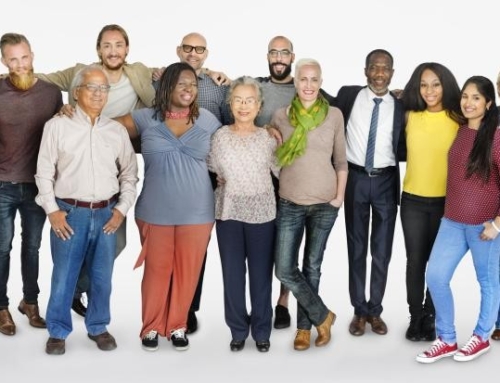“The single biggest problem in communication is the illusion that it has taken place.” – George Bernard Shaw
This quote highlights a common oversight in workplace communication—the tendency to assume that issues are understood or will resolve themselves without explicit discussion. It reminds us, particularly as leaders, of the necessity to speak up and initiate conversations, clearly articulate issues, and verify understanding. Hoping a problem will correct itself or disappear without intervention is ineffective and can exacerbate conflicts.
As leaders from non-HR disciplines and HR professionals, managing conflict through transformative conversations is critical. While we all acknowledge the importance of trust and respect, practical, day-to-day interactions often determine the real-time health of our organizational culture. This newsletter draws on our monthly Community HR Insights for Non-HR Leaders to provide concrete strategies for engaging in meaningful talk that promotes positive change right here and now.
Practical Strategies for Everyday Challenges
Transformative talks extend beyond merely resolving conflicts; they are about actively shaping a positive work environment. Acknowledging that these discussions can be challenging is crucial. I highlight these approaches first because they require more skill and confidence to navigate effectively. As leaders, we must maintain clarity and directness in our communication. Softening our message can obscure its intent, leaving room for misunderstanding. If appropriate, begin by ensuring the timing is right—ask if it’s a good time for a discussion or feedback. If not, reschedule the talk when appropriate. Always strive to keep these conversations one-on-one, providing a private setting that encourages openness and receptivity.
Here are some targeted approaches that you can start using today to encourage a respectful culture:
1. For Addressing Poor Performance:
- What to Say: “I’ve noticed some challenges in your recent work, particularly around [specific issue]. Can we discuss what’s been going on?”
- Why: This opens up a non-confrontational dialogue, focusing on specific issues and demonstrating a collaborative approach to problem-solving.
2. For Correcting Inappropriate Behavior:
- What to Say: “I am sure you intend to contribute to our team environment respectfully and professionally. A recent situation [briefly describe] seemed out of line with our team’s expectations. Can you tell me what happened?”
- Why: This directly addresses the behavior while maintaining a professional tone. This approach reinforces organizational values and sets clear expectations for future conduct.
3. For Providing Difficult Feedback:
- What to Say: “This conversation might be difficult, but we must discuss [state issue]. Here’s what I’ve noticed…”
- Why: Prepares the individual for a serious discussion, indicating the importance of the feedback while fostering an environment where growth is encouraged.
Daily Implementation: How to Use These Strategies
Routine Check-Ins: Regular meetings aren’t just administrative—they’re opportunities to engage with team members, gauge morale, and identify emerging issues. Use these sessions to have talks that encourage open communication and actionable feedback.
Team Meetings: Incorporate one-on-one talks into broader team meetings by summarizing shared achievements and everyday challenges. This helps to normalize open communication and reinforces the message that everyone’s input is valued.
Performance Reviews: Make performance reviews less about evaluation and more about mutual development and learning. Turn the review into forward-looking, constructive talks where feedback is balanced with clear, achievable goals. Utilize phrases that encourage dialogue and collaboration.
Build an Intentionally Inclusive Culture: What Can You Do Today? Value every talk with a team member as an opportunity to reinforce or realign with your organization’s values and goals. Here are a few immediate actions you can take:
- Be Transparent: Always explain the ‘why’ behind decisions, especially when they affect your team. Transparency builds trust and empowers your team to understand and better align with organizational goals.
- Encourage Ownership: Use phrases like, “What can we do together to improve this situation?” Ownership encourages personal responsibility and involvement in the solution, strengthening the team’s overall resilience.
- Acknowledge Effort: Regularly acknowledging your team’s hard work and achievements goes a long way in building a respectful workplace culture. Simple phrases like, “Your hard work on [project] made a difference,” can boost morale and motivate continued effort.
- Ask for a Commitment: After engaging in transformative talks, it is crucial to ask team members to commit to the outcomes discussed. This is not just about obtaining verbal agreements but encouraging ownership and accountability. When team members explicitly commit, they are more likely to act in alignment with the agreed-upon actions. This step reinforces the importance of everyone’s role in shaping the workplace culture and ensures that the initiatives are taken seriously.
Invitation to May’s Community HR Insights for Non-HR Leaders
I encourage you to join our May Community HR Insights for Non-HR Leaders to deepen your understanding and refine our ability to engage in transformative conversations. This masterclass will provide a platform for sharing experiences, strategies, and insights on managing everyday challenges through effective communication. It’s a great opportunity to connect with peers, learn from their experiences, and bring actionable insights to your teams.
Event Details:
- Date: May 21, 2024
- Time: 11:30 am
- Register Here
As we continue to navigate workplace relationships, remember that each talk is a building block in your team culture. Whether you’re an HR professional or a leader in a non-HR role, the tools discussed in our monthly community masterclass can help you engage more effectively, address issues promptly, and create a workplace where everyone can show up and do their best work.
Here’s to leading through dialogue and transforming our workplace one talk at a time!
Join us May 21st to expand your toolkit and become a more effective leader in your organization.
“Words mean more than what is set down on paper. It takes the human voice to infuse them with deeper meaning.” – Maya Angelou
Written by,

Bernadette Jones, SHRM-SCP, SPHR, CEO
Respect in the Workplace Starts With Me™ | Culture-First HR Solutions WBENC & WOSB Certified | Accredited Leadership Coach | DEIB Trainer – San Francisco – Oakland Bay Area








